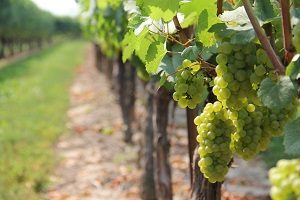 Agricultural operations can significantly impact the environment, and various aspects of these practices can lead to environmental damage. Farming activities could inherently affect soil, water, and air through the use of pesticides, fertilizers, farm equipment, animal waste, runoff, and more. These insureds must adhere to growing regulations and prepare to adapt to the industry’s changing concerns. The definition of ‘pollution’ is continually evolving and changing the insurance needs of businesses in the agriculture industry. In addition to traditional farms, insurance underwriters are seeing more insureds within the non-traditional farming arena, including:
Agricultural operations can significantly impact the environment, and various aspects of these practices can lead to environmental damage. Farming activities could inherently affect soil, water, and air through the use of pesticides, fertilizers, farm equipment, animal waste, runoff, and more. These insureds must adhere to growing regulations and prepare to adapt to the industry’s changing concerns. The definition of ‘pollution’ is continually evolving and changing the insurance needs of businesses in the agriculture industry. In addition to traditional farms, insurance underwriters are seeing more insureds within the non-traditional farming arena, including:
Cannabis farms
From concerns involving disposal, odor control, and maintenance, to less predictable incidents like a leaky storage tank or flooding from a natural disaster, the potential risk of running this type of business can be significant. It is important for business owners and managers to protect their investments with coverage to address these exposures.
Wineries
Although vineyards have been around a long time, the number of wineries in the United States has grown exponentially over the last few decades. Not only do these businesses including growing, harvesting, and other typical farming operations, many wineries also have tasting rooms, tours, and restaurants on their properties, which involve more complicated pollution exposures.
Farms linked to biogas operations
Biomethane or biogas is generated when microorganisms, in the absence of oxygen, digest/break down organic materials such as food and animal waste. As the alternative energy space has grown, many farms are converting manure into biogas. There are special insurance risks and opportunities for insurance agents in this field. The basic nature of the biogas process involves many different volatile and/or toxic components which could be addressed in a Pollution policy.
_____________________________
Agricultural businesses that engage in environmental education and adopt responsible farming practices can help mitigate potential risks associated with environmental pollution. Additionally, on a larger scale, collaboration between scientists, farmers, policymakers, insurers, and other stakeholders is essential to address the challenges listed above and ensure the safety and success of these insureds.
For more information on environmental insurance for agribusinesses, or to discuss an account, please contact us.
